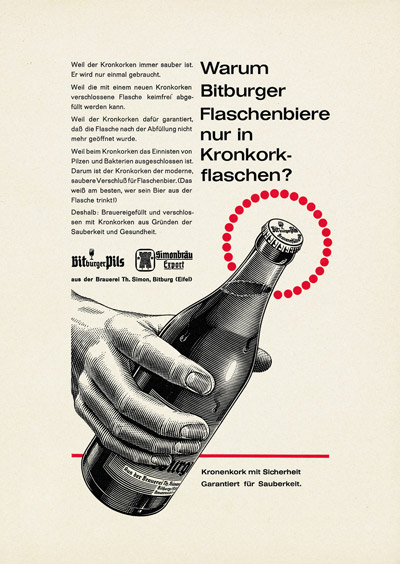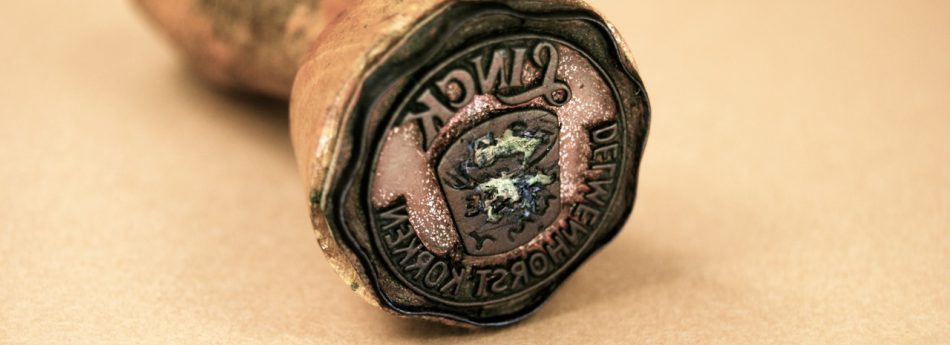Since 1924
Even in the days of the antiquity natural cork, resin and pitch were used as materials for bottle caps. Around 1680, Pierre Pérignon, a Benedictine monk, replaced the wooden plugs, used until then on bottles for sparkling wine, with corks because these do not pop out even during long periods of transportation.
Only since 1890 the true significance of cork became evident: As the trade and economic relationships between nations began to widen and goods needed to cover longer distances, bottles had to be closed tighter for long routes of transportation.
Around 1880 nearly 1000 people were working in the Delmenhorst’s cork industry and producing 280 million bottle corks per year. In 1892, William Painter, an inventor from Baltimore, patented the crown caps in the USA. And in 1903 Michael J. Owens the American succeeded in the automated process of bottle blowing using molten glass. This resulted in a steep rise in the production of bottles. In Germany, the Owens machine was used in 1908 for the first time.
In the year 1901, Arthur Linck was born at a time when in Spain and Portugal cork oak trees were being cultivated extensively and cork began its triumphal march through the industrialized countries as the most sought after raw material.

At that time, cork as the natural product laid the cornerstone for DKF in Delmenhorst. Consequently, Arthur Linck, who was just 23 years, laid the cornerstone for the cork factory in Delmenhorst. Soon after the end of the Second World War, with Günther Linck (born in 1928) the second generation made its entry into the Delmenhorst cork factory.
Since the 1950s we were successfully producing a wide range of cork products such as bottle corks and sealing discs. In addition, we were lining cork products also with plastic and aluminium foils.
The year 1956 saw a major step into the industrial future: the product range around DKF® crown caps made of thin metal sheet lined with cork sealing discs was expanded further.
Once the Euro bottle was introduced mid 1960s and the 0.33 litre bottles became the significant standard, the demand for crown caps rose up in the German breweries.

Image source: Bitburger Braugruppe GmbH
In 1964, due to an increased demand for space within the city of Delmenhorst, the company was relocated for the second time and a new factory was built in its present location at Brendelweg.
Since 1970/71 gas-proof 28mm aluminium screw caps are being produced under the brand name DEL-CAP®, used by operators of mineral springs for returnable glass bottles.
In 1980 the administration was relocated too, into the new administration building at Brendelweg.
In 1982 and 1989 respectively, Edgar Linck and Andreas Linck stepped into the company as the third generation.
At the beginning of the 1990s, as Europe’s first manufacturer, DKF switched the crown cap production to a PVC-free sealants within a record time.
From 1995 to 2015, besides producing caps made of steel and aluminium, DKF also manufactured plastic caps, initially for PET reusable but later also for PET disposable bottles.
Constant optimization of production processes in conjunction with ongoing investments in the highly sophisticated machine pool and the development of our employees are the prerequisites for a successful future.




